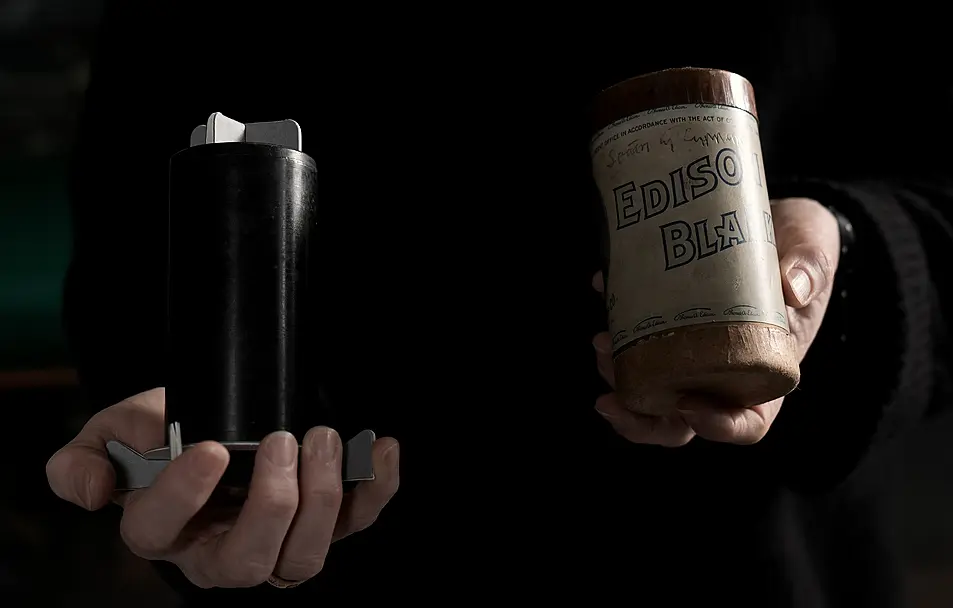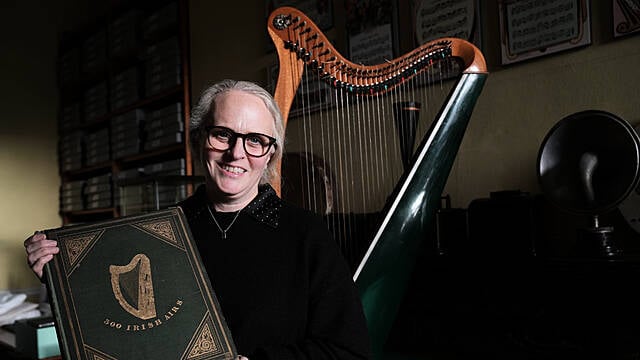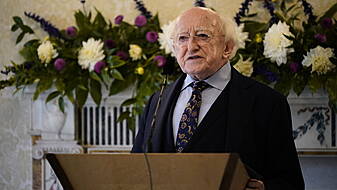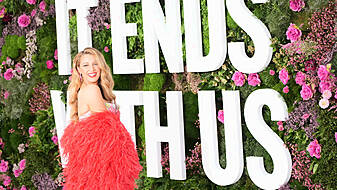The largest collection of Irish traditional music in the world is in a fundraising drive for the end of the year as an anonymous US backer has pledged to match 2024 donations.
The Irish Traditional Music Archive (ITMA) says the donations will help drive access to its extensive library music around the world.
ITMA, founded in 1987, is a public archive and resource centre for anyone with an interest in Irish traditional music, song and dance.

The publicly-accessible archive on Dublin’s Merrion Square is committed to promoting and “preserving the rich cultural tradition of Irish music for future generations”.
It has a multimedia collection with some materials dating back to the 18th century, tracing the development of how music was stored and shared through vinyl, cassettes, CDs and digital downloads.
The painstaking collection and preservation of the vast collection requires a lot of care, space and funding.
Every year, ITMA receives a large number of unique and important private collections.
However, it says limitations around its current funding model mean there will be delays in making these materials accessible outside of Dublin without new sources of funding.

In 2024, a private US foundation pledged to match every donation it receives up to $100,000 (€95,000) – doubling every contribution up to that limit.
The Archive says donations help it offer free, universal access to ITMA’s materials, preserving and growing Irish traditional music around the world.
ITMA archivist Maeve Gebruers says that preserving and digitalising the paper and audio collections is “really expensive work”.
She said: “It’s really all about digitisation now.
“What ITMA is all about is democratising access – because not everybody can come to beautiful Marion Square and can come in and sit in our lovely reading room – so we’re trying to make the very important collections here accessible to everybody across the planet, really.”
That also involves finding solutions to make sure these files are accessible into the future, often a costly process in terms of storage and managing digital assets.

She added: “It’s slow work, it’s tedious work – but it’s so important. That’s why we need the donations.”
ITMA has become an important centre for enjoying and studying Irish traditional music.
Large amounts of material from its collection and curated exhibitions are also available online, allowing the public to access individual song recordings and manuscripts digitised by ITMA staff.
Ms Gebruers said: “People are welcome to come here. They don’t need any particular reason, they can just come and listen to the vast amount of audio recordings that we have here or sit and read the books.
“Obviously, we have more serious researchers too, who have very concentrated areas of research, but it’s open to the public. We love to see our library full and people using it and using the collections. That’s ultimately what we’re all about.”
Speaking among centuries-old ballad sheets and wax phonograph cylinders, Ms Gebruers also notes that Irish traditional music is a “living tradition” which the Archive is collecting on an ongoing basis.


She said: “We don’t just collect historic formats. We are actively in the field collecting from musicians today; older musicians who we will record interviews with and get their recollections of times gone by and how they learned their music and who they learned it from.”
The Merrion Square location also features a recording studio, while ITMA staff also record concerts at large festivals like the Willie Clancy Summer School.
More information on how to donate is available on itma.ie/donate







